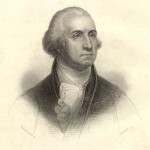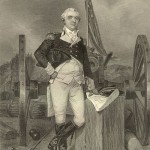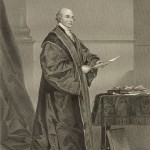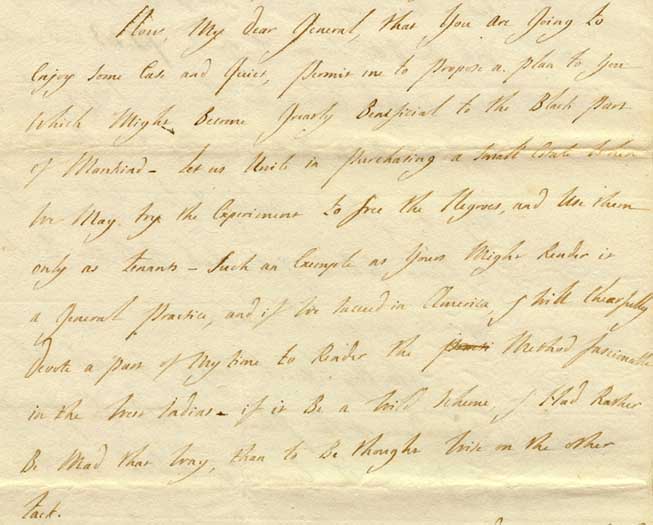A Wild Scheme
The first inkling that Lafayette wished to take action in the cause for the emancipation of slaves appears in a remarkable letter from Lafayette to George Washington, written from Cádiz, February 5, 1783. This letter was written to inform Washington of the signing of the general treaty of peace between England and the United States, January 20, 1783, thus ending the Revolutionary War. It is a lengthy letter of celebration, but contains a startling paragraph requesting Washington’s collaboration in an experiment to emancipate slaves and use them instead as tenant farmers. As radical as the suggestion may have been, it is not surprising that it was Washington’s aid that Lafayette hoped to enlist. The two men were extremely close friends, in fact, their relationship was more like that of father and son. And Lafayette knew how influential such an action by Washington could prove. Although Washington responds cordially to Lafayette on this occasion, as well as later when he learns that Lafayette has actually begun the experiment, he never takes such action during his lifetime. Upon his death, however, in 1799, his slaves were freed by a provision in his will.
 George Washington
George Washington
Lafayette to Washington, Cádiz, February 5, 1783
Now, my dear General, that you are going to enjoy some ease and quiet, permit me to propose a plan to you which might become greatly beneficial to the Black Part of Mankind. Let us unite in purchasing a small estate where we may try the experiment to free the Negroes, and use them only as tenants—such an example as yours might render it a general practice, and if we succeed in America, I will cheerfully devote a part of my time to render the method fashionable in the West Indies. If it be a wild scheme, I had rather be mad that way, than to be thought wise on the other tack.
George Washington to Lafayette, Headquarters Newburgh, April 5, 1783
The scheme, my dear Marquis, which you propose as a precedent, to encourage the emancipation of the black people of the Country from that state of Bondage in which, they are held, is a striking evidence of the benevolence of your Heart. I shall be happy to join you in so laudable a work; but will defer going into a detail of the business, till I have the pleasure of seeing you.
Lafayette to Washington, Paris, February 6, 1786
Another secret I entrust to you, my dear General, is that I have purchased for a hundred and twenty five thousand French livres a plantation in the Colony of Cayenne and am going to free my Negroes in order to make that experiment which you know is my hobby horse.
Washington to Lafayette, Mount Vernon, May 10, 1786
The benevolence of your heart my dear Marquis is so conspicuous upon all occasions, that I never wonder at any fresh proofs of it; but your late purchase of an Estate in the Colony of Cayenne with a view of emancipating the slaves on it, is a generous and noble proof of your humanity. Would to God a like spirit would diffuse itself generally into the minds of the people of this country, but I despair of seeing it …
 Lafayette to Henry Knox, Chavaniac Auvergne, June 12, 1785
Lafayette to Henry Knox, Chavaniac Auvergne, June 12, 1785
I confidentially entrust to you, my dear Sir, that I am about purchasing a fine plantation in a French colony, to make the experiment for Enfranchising Our Negro Brethren, god grant it may be propagated!
 Lafayette to John Jay, Sarguemines on the French Frontier, July 14, 1785
Lafayette to John Jay, Sarguemines on the French Frontier, July 14, 1785
I have been much pleased to find you have stood an advocate for the Negroes—and (as you know their cause, is mine) you will not be surprised to hear I am about an experiment of which I will write you more by and bye.

